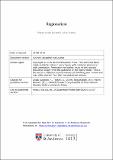Files in this item
Regionalism
Item metadata
| dc.contributor.author | Costa Buranelli, Filippo | |
| dc.contributor.author | Tskhay, Aliya | |
| dc.contributor.editor | Marlin-Bennett, Renée | |
| dc.date.accessioned | 2021-08-28T23:38:44Z | |
| dc.date.available | 2021-08-28T23:38:44Z | |
| dc.date.issued | 2019-08-29 | |
| dc.identifier | 255221767 | |
| dc.identifier | 8e17e283-0ba8-4293-a0cf-c66b134bbea5 | |
| dc.identifier.citation | Costa Buranelli , F & Tskhay , A 2019 , Regionalism . in R Marlin-Bennett (ed.) , Oxford Research Encyclopedia of International Studies . Oxford University Press . https://doi.org/10.1093/acrefore/9780190846626.013.517 | en |
| dc.identifier.isbn | 9780190846626 | |
| dc.identifier.other | ORCID: /0000-0002-2447-7618/work/61133218 | |
| dc.identifier.other | ORCID: /0000-0002-1725-5152/work/101218042 | |
| dc.identifier.uri | https://hdl.handle.net/10023/23860 | |
| dc.description.abstract | “Regionalism” is a polysemic term that represents both a subfield of international relations (IR) that studies regions of the world and a process of formation of regions themselves. Its meaning and content have evolved substantially from its inception in the 1940s to its most recent contributions in the early 21st century. More precisely, the field of regionalism was severely marked by neofunctionalism theory and an economic reading of international relations in the years of the Cold War and then embraced new contributions from post-positivist and critical theories and methodologies from the 1990s onward, which featured not only different manifestations and causes but also different normative meanings. Regionalism has progressively moved away from Europe over the years (both as a site of production of research and as an empirical case study) to explore non-European and, more widely, non-Western and postcolonial domains, challenging Eurocentric theoretical and epistemological assumptions in IR. In addition, the two subfields of comparative regionalism and interregionalism have become prominent. The field of regionalism is more dynamic than ever, developing, self-innovating, and becoming more conceptually aware, while at the same time being susceptible to weaknesses, blind spots, and potential for further improvement and deeper dialogue with IR theory. | |
| dc.format.extent | 562703 | |
| dc.language.iso | eng | |
| dc.publisher | Oxford University Press | |
| dc.relation.ispartof | Oxford Research Encyclopedia of International Studies | en |
| dc.subject | Regions | en |
| dc.subject | Regionalism | en |
| dc.subject | Regionalisation | en |
| dc.subject | Regionness | en |
| dc.subject | Comparative regionlism | en |
| dc.subject | Interregionalism | en |
| dc.subject | IR theory | en |
| dc.subject | Eurocentrism | en |
| dc.subject | Integration | en |
| dc.subject | JZ International relations | en |
| dc.subject.lcc | JZ | en |
| dc.title | Regionalism | en |
| dc.type | Book item | en |
| dc.contributor.institution | University of St Andrews. School of International Relations | en |
| dc.contributor.institution | University of St Andrews. Centre for Global Law and Governance | en |
| dc.identifier.doi | 10.1093/acrefore/9780190846626.013.517 | |
| dc.description.status | Peer reviewed | en |
| dc.date.embargoedUntil | 2021-08-29 | |
| dc.identifier.url | https://oxfordre.com/internationalstudies | en |
This item appears in the following Collection(s)
Items in the St Andrews Research Repository are protected by copyright, with all rights reserved, unless otherwise indicated.

